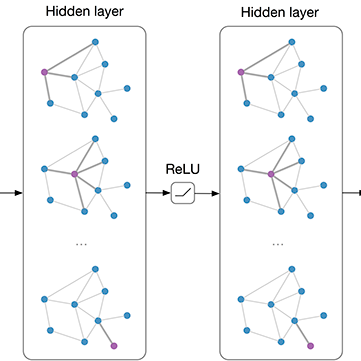\textbf{G}raph \textbf{C}onvolutional \textbf{N}etwork (\textbf{GCN}) is widely used in graph data learning tasks such as recommendation. However, when facing a large graph, the graph convolution is very computationally expensive thus is simplified in all existing GCNs, yet is seriously impaired due to the oversimplification. To address this gap, we leverage the \textit{original graph convolution} in GCN and propose a \textbf{L}ow-pass \textbf{C}ollaborative \textbf{F}ilter (\textbf{LCF}) to make it applicable to the large graph. LCF is designed to remove the noise caused by exposure and quantization in the observed data, and it also reduces the complexity of graph convolution in an unscathed way. Experiments show that LCF improves the effectiveness and efficiency of graph convolution and our GCN outperforms existing GCNs significantly. Codes are available on \url{https://github.com/Wenhui-Yu/LCFN}.
翻译:\ textbf{G} g}raph \ textbf{N}C} 革命性(\ textbf{N}etwork (\ textbf{GCN}) 被广泛用于像建议这样的图表数据学习任务。 但是,当面对一个大图表时, 图表的演变在计算上非常昂贵, 在所有现有的GCN中如此简化, 然而由于过度简化而严重受损。 为了解决这一差距, 我们利用GCN中的\ textitle{ 原始图变迁}, 并提议 \ textbf{C} ollabotionational \ textbf{F{F} filter (\ textbf{LCF}) 使它适用于大图表。 LCF 旨在清除所有观测到的数据中因接触和四分化而引发的噪音, 同时也以不简单的方式降低图变迁的复杂程度。 实验显示, LCFFCF会提高图变现的效能和效率, 和我们GCN 超出现有的GCN CNs 显著的 GCNs/RFRF/urmax/ 。



